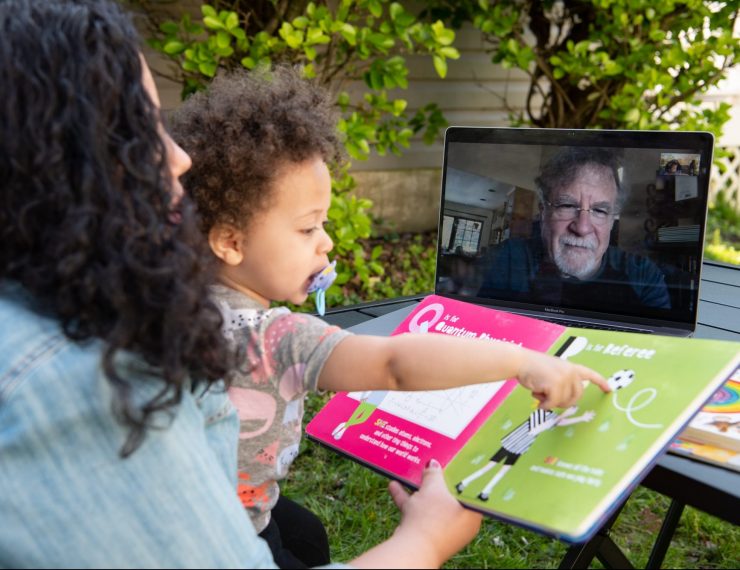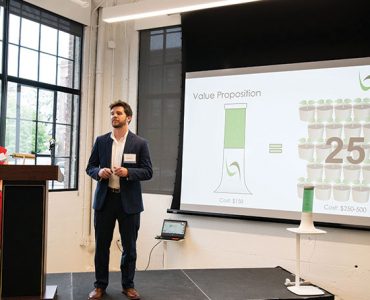During a checkup, parents ask their toddler’s pediatrician about her attainment of developmental milestones. The doctor must evaluate and address their concerns — via a screen. This scenario, groundbreaking for many during the COVID-19 pandemic, may become routine as parents and providers embrace telehealth. The challenge: to find innovative ways to improve these virtual visits.
Enter two teams from the Institute for Innovation and Implementation (the Institute) at the University of Maryland School of Social Work (UMSSW). One group and its collaborators are advancing pediatricians’ adoption of telehealth nationally; the other is statewide.
“We’re trying to highlight best practices using telehealth,” says UMSSW assistant dean Michelle Zabel, MSS, director of the Institute. “One benefit is how telehealth can provide more equity in the ability to care for and support families.” In rural areas, for example, distance would no longer deny residents access to “the best of the best,” she says.
The American Academy of Pediatrics (AAP) received a $6 million federal grant through the 2020 CARES (Coronavirus Aid, Relief, and Economic Security) Act and invited the Institute to collaborate. Zabel serves on the National Advisory Group for the initiative; Jennifer Lowther, LCSW-C, the Institute’s clinical and quality initiatives director, serves on AAP subcommittees.
The Institute will deliver three animations, two videos, and a series of telehealth modules on topics such as substance use and mental health among adolescents and gender diversity. To create the modules, Lowther is working with behavioral health experts from the Institute and has tapped others from the pediatrics and psychiatry departments at the University of Maryland School of Medicine (UMSOM).
The lessons will urge providers to adequately prepare and, once on screen, to quickly engage lest patients and their families cease to pay attention and lose confidence. Besides physicians, providers include nurse practitioners and family-care licensed social workers. “It’s the broad swath of pediatric care providers in the United States,” Zabel says.
In Maryland, the Institute is partnering with the Maryland Chapter, AAP (MDAAP) to expand the chapter’s TREE (Talk, Read, Engage, Encourage) program beyond office-visit interactions to virtual ones. The new program, called TREEHOUSE, will reach urban, suburban, and rural areas.
UMSSW research assistant professor Margo Candelaria, PhD, research director of the Parent, Infant & Early Childhood Program at the Institute, is principal investigator under a grant from the same agency that funded AAP nationally. The Health Resources & Services Administration provided $646,878 for TREEHOUSE for five years starting in April.
The Institute will lead creation of telehealth materials for about 45 pediatric practices. In turn, they will provide developmental coaching to 450 low-income families with children from infancy to age 2.
“The child should have increased stimulation and play in the home,” Candelaria says of the outcomes of the coaching. She also anticipates neurobiological benefits such as improved kindergarten readiness.
Kenneth Tellerman, MD, adjunct assistant professor of pediatrics at UMSOM, established the TREE model with colleagues including Candelaria. They are among MDAAP collaborators who created TREEHOUSE.
“In between well-child visits, you could use telehealth with families to check on development and promote parent-child interaction,” says Candelaria, who — like Zabel — sees a bright future for virtual pediatrics beyond the pandemic.




